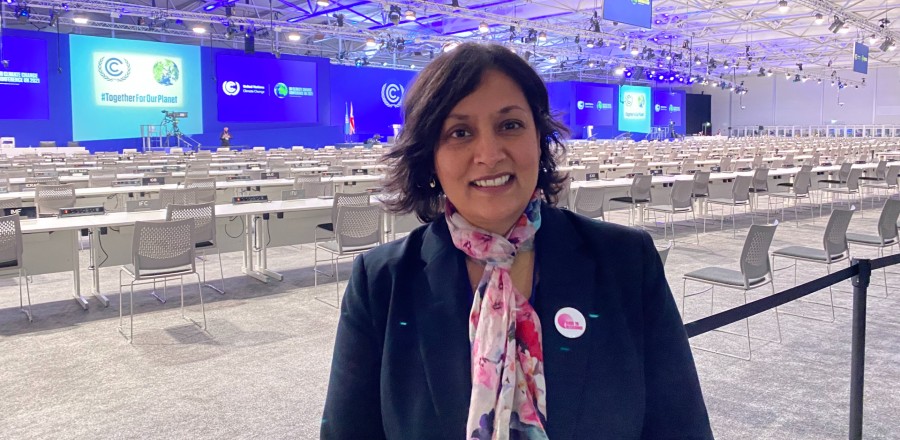Professor Jafry looks to continue climate conversations at COP27

This weekend marks the beginning of COP27 in Egypt’s resort town of Sharm El Sheikh.
It also marks a year since the annual United Nations climate summit was held in Glasgow, where Glasgow Caledonian University itself played a key role.
However, Professor Tahseen Jafry, director of the University’s Mary Robinson Centre for Climate Justice, is keen to keep the pressure on world leaders as she believes plans laid so far remain insufficient to limit the global temperature rise to 1.5 degrees Celsius by the end of the century.
She will be attending the Egypt summit to lead on vital discussions with former President of Ireland Mary Robinson, Chair of The Elders, about GCU’s research findings and how they feed into some of the most critical issues that will be on the COP27 agenda - namely loss and damage, and climate finance.
Professor Jafry’s busy schedule will see her attend high-level events in collaboration with the World Health Organisation and also the African Development Bank.
She said: “The Paris Agreement in 2015 saw countries commit to bold reductions in greenhouse gas emissions, but such climate ambition comes with pressing questions. Who bears the burden of climate action as societies around the world transit to a low-carbon regime and to sustainable ways of life?
“Relatedly, who bears the burden of climate adaptation as societies adjust to new climate scenarios? With reference to climate justice, we understand that the impacts of climate change will affect some communities more severely than others. Low-income, marginalised and other disadvantaged groups will be hit the most. The inherent climate injustice is so profound that these communities will bear the economic, social and environmental burdens of climate change and will also be denied the right to a decent quality of life, despite not being significantly at fault for climate change.
“I will be discussing the research of our centre at numerous events at COP – such as that which investigated the effects of climate change on the mental health of women in Malawi – and I will be helping to ensure these conversations with key decision makers continue.
“Looking ahead, I do not know what will be achieved at COP27 and beyond, but we must look towards ensuring a healthy and sustainable environment for all of humanity and delivering on our commitments to achieve climate justice. The protection of human rights and especially of the most vulnerable – socially, legally, financially and environmentally – is vital. This is not simply a moral duty of care or an act of compassion, but rather an obligation for the world’s richest economic actors to put humanity in the conditions to live healthy lives with dignity.”
